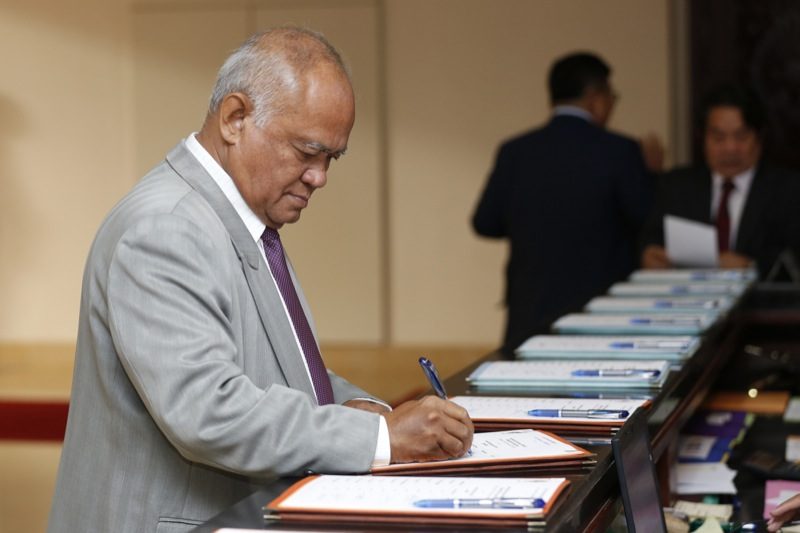A new draft law passed in the National Assembly on Friday that allows high-ranking civil servants to continue working for up to three years past their standard retirement ages, despite criticism from an opposition lawmaker that the change could open the door to further corruption.
The amendment to the Civil Statute on the Legislative Body was proposed by 29 lawmakers in January. It states that department directors, deputy directors and secretaries — whose retirements ages are 60, 58 and 55 respectively — would now be able to extend their tenures by up to three years. They would have to reapply for an extension at the end of each year.

Of the body’s 99 lawmakers, 93 voted in favor of the change. The draft law now goes to the Senate.
CPP lawmaker Pen Pagna, who is also a chairman of the National Assembly’s Legislative Commission, said the amendment was aimed at improving “the livelihoods of all kinds of civil servants.”
However, CNRP lawmaker Ngim Nheng raised concerns that extending retirement ages could result in corruption and blocking young people from opportunities to gain experience.
“Those who reach 60, 58 and 55 years old must retire from work and should not be allowed to extend for three further years,” he said. “Allowing this is like to giving a chance for corrupt officials or nepotism to continue working…and then the young generation cannot replace their posts.”
Leng Penglong, secretary-general of the National Assembly, refuted these claims, pointing out that civil servants would only be able to extend their contracts upon assessment and that younger officials would be installed if they were deemed to be better suited to the roles.
“For the issue of retirement — that we allow to be extended three times — it means that the particular officials are very important for the institution,” he said.
“If there are new people who have the capacity for replacement, then that official will not be allowed to work. But if the institution director thinks that that person is very important for keeping there, it can be allowed for the sake of good processing at that workplace.”




